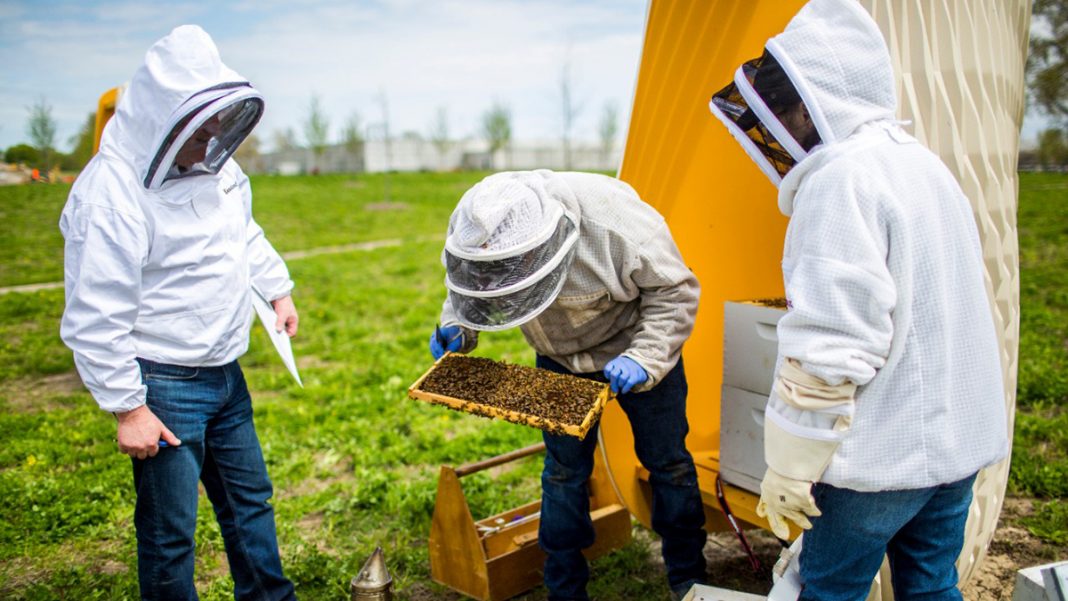Adam Ingrao was a military man. He always knew it, just like his father and his father before him, so he enlisted. But when Ingrao’s military career abruptly ended, he struggled to acclimate back into civilian life. A few years later, he found solace in an unexpected place – with honeybees. Now, he’s teamed up with Ford to help more veterans find healing in the hive.
In 2015, Ingrao started a therapeutic beekeeping program with just five other veterans. Since then, it has evolved into Heroes to Hives, a unique nine-month program offered through Michigan State University Extension that seeks to address the financial and personal wellness of veterans via professional training and community development centered on beekeeping. Ingrao serves as agricultural entomologist educator and veteran liaison for Michigan State University Extension.
Initially, the program that helps to provide the comradery, mindfulness and structure many veterans need to successfully acclimate back into civilian life did not have a presence in Southeast Michigan. So when Cormac Wright, Ford global energy systems project manager, learned about Heroes to Hives and its need for a location in Southeast Michigan, he knew there had to be an opportunity with Ford.
“Heroes to Hives is an amazing program,” said Wright. “It’s a privilege for all of us at Ford to be able to provide something to help our veterans.”
Wright spearheads the Ford corporate-wide beekeeping program. The sustainability initiative supports honeybee populations, the local ecosystem, gardening and farming communities, and Heroes to Hives aligns with these efforts. So when Wright set out to find space at Ford for the program, his efforts led him to a Ford farm in Ypsilanti.
Ford Cherry Hill Farm is an 800-acre working farm producing corn, soybeans, wheat and hay. Once used as a testing site for the Ford tractor division, it is now the newest location for Heroes to Hives. Ford is dedicating five acres of Cherry Hill Farm to the program. In addition to the hives, there will be pollinator-friendly plants to support the honeybees and other pollinators.
“Most veterans in the state reside in Southeast Michigan,” said Ingrao. “Ford has enabled us to provide a more accessible location for many of our Heroes to Hives participants.”
Ford bees flourish on campus of company headquarters
Last year, a Ford designer created six special hive shells to house bee colonies. Standing more than seven feet tall, the beautifully designed hive shells are now situated inside a walking path extension north of Ford World Headquarters. Altogether, the shells contain six colonies with an estimated total of a quarter million bees. Ford employee volunteers serve as beekeepers and manage the hives.
After the winter, the colonies increased in size and the Ford bee population multiplied enough to warrant a controlled split. Splitting a hive allows bees to continue to multiply and prevents swarming. Ford harvested enough bees to start five new colonies from the original hives. All of the harvested bees, approximately 25,000 in all, will go to Ford’s Cherry Hill Farm to help veterans as part of the Heroes to Hives program.






























